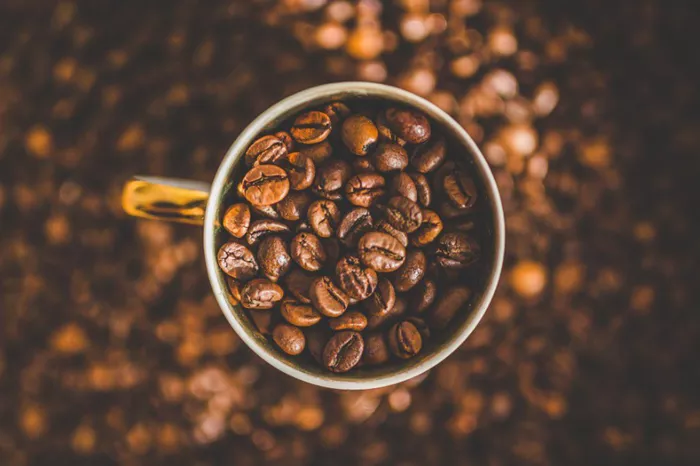Chocolate-covered coffee beans are a popular treat that blends the rich flavors of chocolate with the invigorating effects of coffee. Whether you’re seeking a quick pick-me-up or simply indulging in a sweet snack, these beans have become a favorite for many. One of the most common questions asked by consumers is, “How much caffeine is in chocolate-covered coffee beans?” In this article, we will explore the caffeine content of chocolate coffee beans, compare them to other caffeinated products, and offer tips on how to enjoy them responsibly.
Caffeine Content per Bean
Chocolate-covered coffee beans combine the natural caffeine content of coffee beans with the added sweetness of chocolate. But how much caffeine does each bean contain?
Caffeine Content per Chocolate Coffee Bean
On average, each chocolate-covered coffee bean contains around 10-14 milligrams of caffeine. The exact amount depends on several factors, including the type of coffee bean and the chocolate used.
Type of Coffee Bean
Coffee beans from different varieties, such as Arabica or Robusta, contain varying levels of caffeine. Robusta beans typically have higher caffeine content than Arabica beans.
Type of Chocolate
Dark chocolate generally has more caffeine than milk chocolate due to its higher cocoa content. If the chocolate coating is particularly thick, this can slightly increase the overall caffeine amount.
In addition to the caffeine in the coffee bean, the type of chocolate (dark, milk, or white) plays a role in the final caffeine content of the product. Dark chocolate, for example, can add up to 5-10 mg of caffeine per ounce, contributing further to the total caffeine intake.
Recommended Daily Intake
The FDA’s recommended maximum caffeine intake for most adults is 400 milligrams per day, which is approximately the amount found in four 8-ounce cups of coffee. This equates to around 28-40 chocolate-covered coffee beans (assuming each bean contains 10-14 mg of caffeine).
For those who are sensitive to caffeine or consuming other caffeinated products throughout the day, it’s essential to keep track of the total intake. To maintain balance, it’s advised to limit consumption to about 30 beans per day.
Effects of Caffeine on the Body
Caffeine is a stimulant that works by blocking adenosine receptors in the brain, making you feel more alert and awake. However, overconsumption of caffeine can lead to side effects. Common effects of caffeine include:
Increased alertnes
Caffeine boosts cognitive function, improving focus and concentration.
Increased heart rate and blood pressure
Excessive caffeine can cause heart palpitations or raise blood pressure.
Side effects of overconsumption
These can include jitteriness, anxiety, insomnia, and digestive issues. The body’s tolerance to caffeine can vary, so it’s crucial to be mindful of individual limits.
Tips for Responsible Consumption
Enjoying chocolate-covered coffee beans responsibly means being mindful of both the quantity and the timing of consumption. Here are some tips:
Moderate Your Intake
Limit the number of chocolate-covered coffee beans consumed in one sitting. Aim for around 6-8 beans at a time to prevent excessive caffeine consumption.
Consider Other Sources of Caffeine
If you drink coffee or energy drinks throughout the day, factor in the caffeine from chocolate-covered coffee beans to avoid going over the recommended daily limit.
Enjoy as a Treat, Not a Habit
While these beans are delicious, they should be enjoyed as an occasional treat, not a daily habit, to avoid overloading on caffeine.
Fun Facts About Chocolate-Covered Coffee Beans
Chocolate-covered coffee beans aren’t just a tasty treat—they also come with an interesting history and unique production process:
Origins of the Treat
Chocolate-covered coffee beans have been around for centuries, first becoming popular in the 1800s in Europe. The treat likely originated as a way to make coffee more palatable.
How They’re Made
The process of making chocolate-covered coffee beans involves roasting coffee beans to enhance their flavor and then coating them in melted chocolate. The beans are typically coated in one or more layers of chocolate for a smooth and indulgent experience.
Health Benefits
Aside from caffeine, coffee beans and dark chocolate both contain antioxidants, which can help protect the body from free radicals and reduce inflammation.
Conclusion
In summary, chocolate-covered coffee beans are a delicious and convenient way to enjoy both coffee and chocolate in one bite-sized treat. With each bean containing 10-14 mg of caffeine, they offer a moderate caffeine boost. While the caffeine content is lower than a full cup of coffee, it’s important to be mindful of the total amount consumed throughout the day, especially if you’re sensitive to caffeine.
Related topics:
- How Much Caffeine is in a Medium Cold Brew at Dunkin’? A Complete Guide
- How Much Coffee Should I Put in a Coffee Maker?
- How Much Caffeine Is in Cold Brew Coffee?


